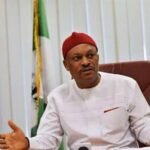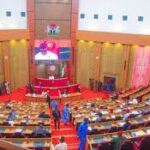Nigeria’s budget has been facing significant challenges due to several intertwined factors:
- Oil Dependency and Price Volatility:
- Nigeria’s economy heavily relies on oil for revenue. Fluctuations in global oil prices directly impact government earnings. When oil prices drop, as seen in various periods, Nigeria’s budget suffers due to reduced income.
- Fuel Subsidy Burden:
- The fuel subsidy has historically been a significant drain on the Nigerian budget. Despite attempts to remove it, the government has faced substantial political and social backlash, leading to a scenario where the subsidy was either reinstated or managed in a way that still impacts the budget negatively. The cost of these subsidies often exceeds budgeted amounts, leading to deficits.
- High Debt Servicing Costs:
- Nigeria has seen an increase in its debt servicing costs, with a large portion of revenue being allocated to servicing debts rather than funding development projects. This situation was exacerbated by borrowing to cover budget deficits, leading to a scenario where debt service could consume nearly 100% of the government’s revenue by 2026 if trends continued.
- Revenue Collection Inefficiencies:
- Despite efforts to increase tax revenue through reforms, Nigeria’s tax-to-GDP ratio remains one of the lowest globally, indicating inefficiencies in tax collection and compliance. This low revenue collection impacts the government’s ability to fund its budget effectively.
- Exchange Rate and Currency Devaluation:
- The devaluation of the naira has increased the cost of servicing foreign debts and imports, putting additional pressure on the budget. The move to a more flexible exchange rate system has led to higher costs in dollar terms for government operations and imports critical for the economy.
- Inflation and Economic Instability:
- High inflation rates have led to increased costs for government projects and recurrent expenditures. This, combined with economic policies aimed at stabilizing the economy, has often resulted in higher than anticipated spending, further straining the budget.
- Security and Insecurity:
- Ongoing security challenges, including insurgency, banditry, and kidnappings, require substantial budget allocations for defense and security measures. These costs have been rising, diverting funds from other developmental sectors.
- Corruption and Budget Padding:
- There have been instances where the budget has been padded, leading to inefficient use of funds and misallocation. Issues like budget padding and corruption have historically undermined the effectiveness of budget implementation.
- Economic Reforms and Their Short-Term Costs:
- Recent economic reforms, including the removal of fuel subsidies and currency reforms, have led to short-term economic pains like increased inflation and living costs, which in turn affect the government’s budgetary planning and execution.
- Global Economic Pressures:
- External factors like the global economic downturn, the impact of the COVID-19 pandemic, and international conflicts affecting commodity prices have all contributed to Nigeria’s budgetary woes by influencing both revenue and expenditure.
These factors collectively illustrate why Nigeria’s budget has been under strain, with many of these issues compounding the challenges of achieving fiscal stability and growth.







